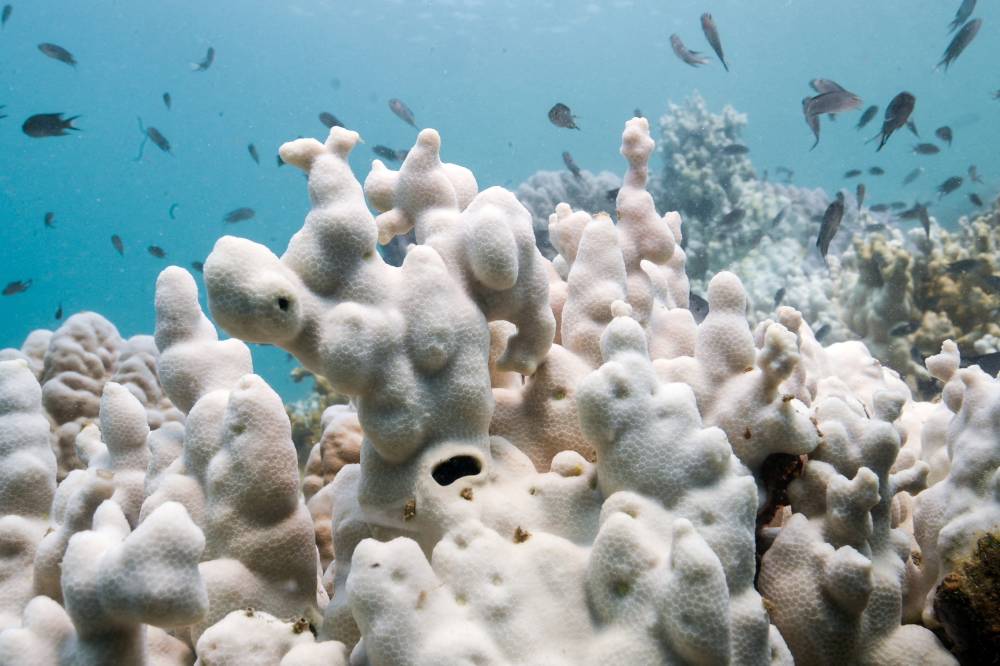Global coral bleaching event biggest on record

WASHINGTON—A global episode of heat-related coral bleaching has grown to the largest on record, US authorities said Friday, sparking worry for the health of key marine ecosystems.
From the beginning of 2023 through Oct. 10, 2024, “roughly 77 percent of the world’s reef area has experienced bleaching-level heat stress,” Derek Manzello of the National Oceanic and Atmospheric Administration (NOAA) told AFP.
When ocean water is too warm—such as during heat waves which have hit areas from Florida to Australia in the past year—coral expel their algae and turn white, an effect called “bleaching” that leaves them exposed to disease and at risk of dying off.
The algae provide coral with food and nutrients, as well as their their captivating colors.
‘Still increasing in size’
Manzello said the ongoing bleaching event—the fourth since 1998—had surpassed the previous record of 65.7 percent, and “is still increasing in size.”
Coral bleaching affects not only the health of oceans but also the livelihoods of people, food security and local economies.
Severe or prolonged heat stress leads to corals dying off, but there is hope for recovery if temperatures drop and other stressors such as overfishing and pollution are reduced.
The last record had been set during the third global bleaching event, which lasted from 2014 to 2017, Manzello said, and followed previous events in 1998 and 2010.
NOAA’s heat-stress monitoring is based on satellite measurements from 1985 to the present day. It declared the latest mass bleaching event in April 2024.
Pepe Clarke, with the environmental nonprofit WWF, said at the time that the “scale and severity of the mass coral bleaching is clear evidence of the harm climate change is having right now.”
AFP is one of the world's three major news agencies, and the only European one. Its mission is to provide rapid, comprehensive, impartial and verified coverage of the news and issues that shape our daily lives.
















